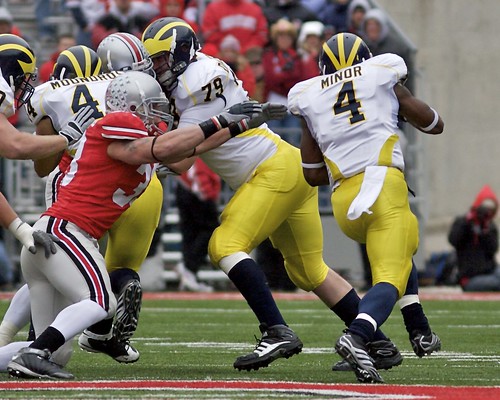 |
| Photo Credit: + MUSH |
But when referring to those of other ethnicities, we rarely move past skin color ("Um...I'm not sure which one. I do know he was black"). One of my favorite television shows, The Office, demonstrated this in one episode where the innocent, yet incompetent, Michael Scott had to mark the arm of his Asian date because he could not tell her apart from her friend, another Asian women.
However, the inability for members of one racial group to distinguish members of other groups is not the exclusive property of us white folk. TIME Magazine tells the story:
"You've heard the racial epithet: All you people look the same. It's detestable, but a new study shows that the racist observation happens to be true. To members of one race, members of another race are far more difficult to differentiate.I, for one, don't see these findings as surprising at all. I've spent enough time around other white people to know that most of us do have a difficulty time in distinguishing those of other races. But I've also spent enough time in African American circles to know that the same is true for black people.
The study, written by a European team led by Luca Vizioli of the University of Glasgow and published in a recent issue of the Proceedings of the National Academy of Sciences, begins by noting that humans are remarkably skilled at facial recognition: we can differentiate family members and friends from strangers in far less than a second. (More on Time.com: The Authentic Self: How Do You Know If You're 'Really' Racist or Sexist?)
And yet as long ago as 1914, an academic publication called the Journal of Criminal Law and Police Science published an article saying it takes us longer to tell apart members of races other than our own. "To the uninitiated American," the authors wrote, "all Asiatics look alike, while to the Asiatics, all White men look alike."
...The study found that, as expected, both Asian and white observers revealed what is called the "other-race effect": they took longer to recognize members of other races.
The authors controlled for differences in how the faces in the photos looked. It didn't matter whether someone was pretty or ugly, whether they were making a nice face or a rude one: it still took longer to recognize them if they were a member of another race."
Case in point: I happen to work with an organization primarily made up of African Americans. I am often one of the few white people around during meetings or gatherings. At least on initial interaction with new people, I can be known as "the white guy." There is another gentleman that works with us that is also white. I have frequently been confused with him, although he is twenty years my senior and, apart from the fact that we both have brown hair and wear glasses, doesn't really resemble me.
So if someone has a difficult time differentiating people of a different ethnicity, I don't necessarily chalk that up to racism. It may be that they simply haven't spent enough time with people within that racial group in order to quickly identify them in a way that is similar to how they would within those of their own ethnicity.
In order to help with distinguishing those of different races, we need to be able to move beyond skin color and see more of the complete person. Just as we point out the features that make someone different within our own race (e.g. hair styles, body type, what type of glasses they wear, etc.), we can apply that to those of other ethnicities.
There may be something inherent within us that makes it more challenging to identify those from other ethnic groups but, unlike Michael Scott, we don't want to stay in our ignorance. By building relationships with those of other ethnicities, we will be begin to see people as individuals and not just as members of another race. Yes, our ethnicity is part of who we are, but it doesn't say everything about us. Strive to get to know people as unique individuals and it's amazing how you will begin to see their uniqueness.
(h/t to Racialicious for the link)



